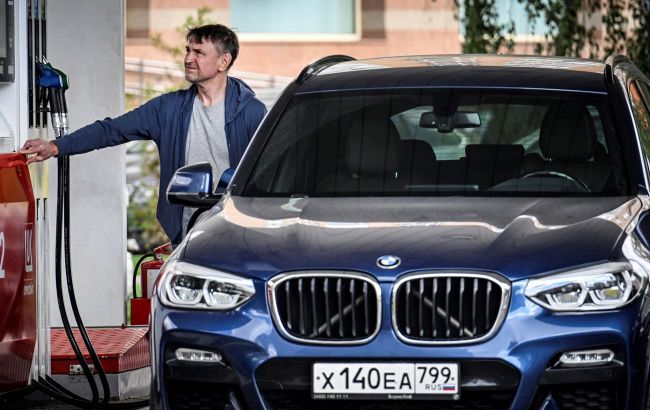Ukraine's strikes on Russian refineries disrupt fuel market, most drivers face shortages – ISW
 Illustrative photo: Ukraine's strikes on refineries disrupted the fuel market in Russia (GettyImages)
Illustrative photo: Ukraine's strikes on refineries disrupted the fuel market in Russia (GettyImages)
Over 70% of drivers in Russia have noticed significant fuel price increases following a series of successful Ukrainian strikes on Russian refineries. Even more surveyed believe the situation will continue to worsen.
This was reported by the Institute for the Study of War (ISW).
According to the report, gas stations increasingly sell low-quality fuel, leading to widespread engine malfunctions. Due to shortages, nearly half of Russian motorists have had to change their driving habits and conserve every liter.
A survey by the financial platform WEBBANKIR found that 74% of Russian drivers have already experienced higher gasoline prices since August 2025, and 90% expect further increases.
More than half of respondents (56%) consider the rise in fuel costs significant, and almost 19% have encountered empty pumps at gas stations. About 40% have adjusted their driving habits to save fuel, while another 38% have switched to cheaper fuel.
Analysts note that gasoline prices in Russia have risen 10% since the beginning of the year, marking the sharpest increase in 15 years. This situation is further complicated by poor fuel quality.
Yuriy Valko, head of the Union of Russian Auto Services, stated that low-quality gasoline is increasingly being sold at Russian gas stations, causing engine damage. Geely Motors also reported widespread vehicle breakdowns in Russia, directly blaming fuel suppliers for using fuel with excessive impurities.
The Institute for the Study of War explains this crisis as a consequence of the Ukrainian campaign targeting Russian energy infrastructure, which is causing fuel shortages, price spikes, and threatening inflation growth in Russia. Analysts emphasize that even Russian state media are forced to acknowledge the scale of the problem, indicating its deepening.
Fuel crisis in Russia
The fuel crisis in Russia escalated after a series of major Ukrainian drone strikes on refineries. As a result, fuel sales restrictions were introduced in several Russian regions and in Russian-occupied Ukrainian territories, and Russian authorities were even forced to ban fuel exports.
Amid shortages, gas station networks began closing en masse, including in Moscow. According to Russian media, at least 57 regions have already felt the effects of the gasoline shortage caused by the refinery strikes.
To partially stabilize the situation, the Kremlin resumed fuel purchases from Belarus via the St. Petersburg Exchange. Deliveries resumed for the first time in almost a year, which in Russia is explained by high demand and unscheduled refinery shutdowns.

